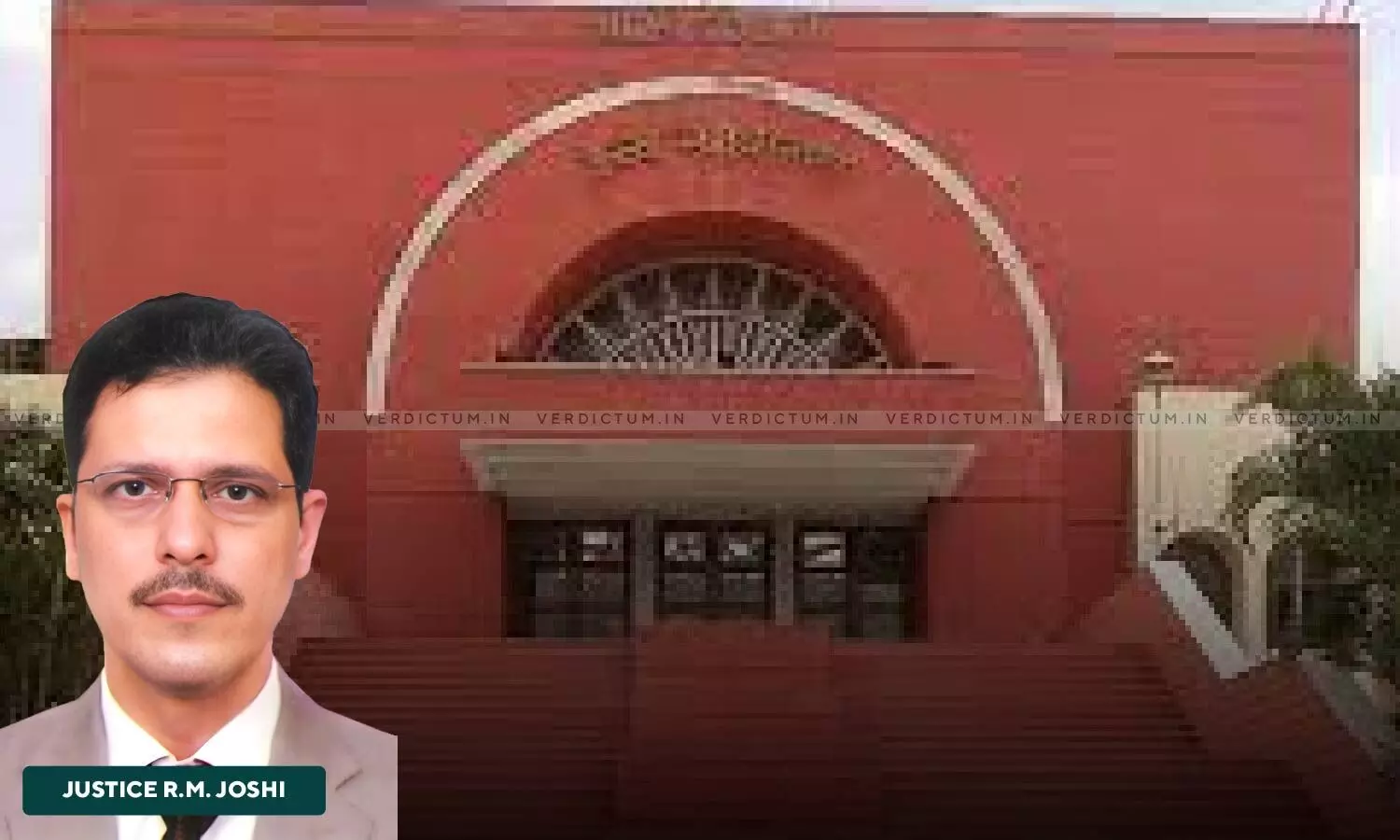
Non-Compliance Of PCPNDT Act In Any Manner Is Not Excused As Smallest Of Error Relating To Sex-Determination Attracts Penal Consequences: Bombay HC
 |
|While emphasizing that there should be deterrence for those indulging in sex determination and to achieve its objective, strict compliance of the Pre-conception and Pre-natal Diagnostic Techniques (Prohibition of Sex Selection) Act, 1994 (PCPNDT Act) is a must, the Bombay High Court ruled that that non-compliance of the Act in any manner is not excused, as smallest of an error attracts penal consequences.
A Single Judge Bench of Justice R.M Joshi observed that “cancellation or suspension of registration as contemplated under Section 20 of PCPNDT Act has no remedy. Section 21 of the Act provides for an appeal against such suspension or cancellation of registration. In any event, merely because the act provides for consequences of framing charge which are drastic in nature, accused cannot be discharged where prima facie case is made out showing his involvement in the crime in question”.
Advocate B. R. Kedar appeared for the Petitioner, whereas APP S. P. Sonpawale appeared for the Respondent.
The brief facts of the case were that the Petitioners (medical practitioners), runs registered Sonography Centre in the name and style as “Suvidha Hospital, Maternity Home and Sonography Centre” since 2006. Upon the expiry of the Registration certificate issued in favour of the petitioner, an application was made for renewal thereof, which was accepted after inspection of the sonography machine. However later, alleging discrepancies in Form F, the sonography machine was sealed and a show cause notice was issued. Since the reply was found unsatisfactory, a complaint came to be registered by the Appropriate Authority under Sections 4(3), 5, 6 and 29 of the PCPNDT Act.
After considering the submission, the Bench observed that the Act intends to prevent misuse for sex determination leading to female foeticide and a declining sex ratio in India.
“A question of the constitutional validity of Sections 23(2) and 25 of the PCPNDT Act was raised before the Apex Court in the case of Federation of Obstetrics and Gynaecological Societies of India (FOGSI) vs. Union of India and others, (2019) 6 Supreme Court Cases 283. The Apex Court has in no uncertain terms held therein that non-filling of information cannot be termed to be a clerical error, but in case it is kept vague that itself facilitates an offence”, added the Bench.
While reiterating that the wholesome social legislation would be defeated in case the form is not filled which is sine qua non to undertake tests/procedures, the Bench highlighted that filling of Form F cannot be considered as insignificant or ancillary in view of the aims and objects of the Act.
Regarding the submission that renewal of registration and reopening of the seal of the sonography machine by the District Authority amounts to condonation of the act of non-filing of Form F, the High Court recorded that the act of sealing of the sonography machine is independent to the non-compliance and maintenance of relevant record.
“Rule 12 of Rules of 1996 made under PCPNDT Act, provides that Appropriate Authority may seal and seize ultrasound sonography machine if there is reason to believe that it may furnish evidence of the commission of an offence under the Act”, added the Court.
Finding that there is no allegation in the present case that the sonography machine was misused and that its seizure was required for the collection of evidence, the High Court clarified that de-sealing directed by District Authority can never be treated as condonation of the acts of petitioners, which otherwise constitute an offence under the Act, and similarly, renewal of registration for a further period of five years cannot be termed as a waiver of the charges.
The Bench found from the perusal of Form F that the same was framed by the experts taking into consideration the effect of the information provided therein the decision of conducting sonography and ultimately, for termination of pregnancy.
“The information like the number of male and female children, reasons for conducting sonography, genetical diseases etc. cannot be branded as formal information having no significance as it has a direct bearing on the decision of undertaking procedure of sonography and termination of pregnancy thereafter”, added the Bench.
Lastly, as far as the question as to whether renaming of the hospital would take away the authority of the Medical Superintendent to initiate action in the capacity of Appropriate Authority under Section 2(a) of the PCPNDT Act, involves a determination of disputed facts, the High Court refused to entertain the same.
Cause Title: Dr Ravindra and Anr. v. State of Maharashtra and Anr.
Click here to read/download the Judgment